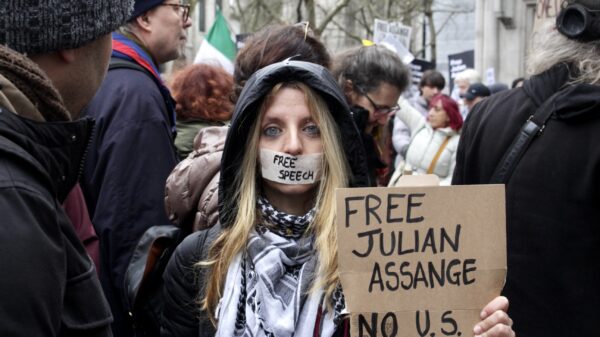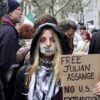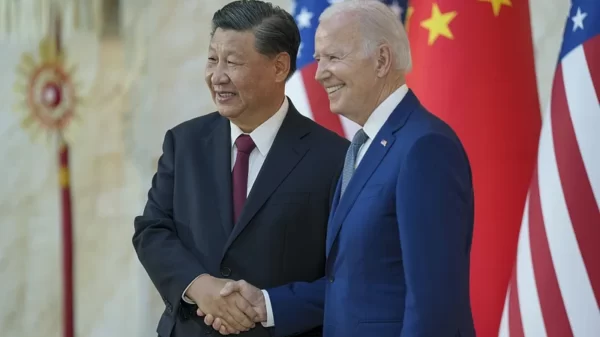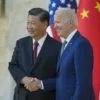Staff writer Lily Powell discusses the drawn-out legal battle over the death of Harry Dunn, following news of Anne Sacoolas pleading guilty. She asks if diplomatic immunity is appropriate for the 21st century.
Following a three year diplomatic row between American and British governments, US citizen Anne Sacoolas pleaded guilty to causing the death of nineteen year old motorcyclist Harry Dunn by ‘careless driving’. On 27 August 2019, Sacoolas drove 350 metres on the wrong side of the road after leaving the Royal Air Force (RAF) Croughton base and hit 19-year-old motorcyclist Harry Dunn, who later died in hospital.
RAF Croughton is a U.S. Air Force installation to which Sacoolas and her family had recently moved. Because her husband worked for a US intelligence agency, Anne Sacoolas was granted diplomatic immunity on behalf of the US administration. Although widely reported that Anne Sacoolas is merely the wife of the CIA intelligence agent working here, it is rumoured that she herself is also an intelligence officer following a statement from her lawyer that “she was working as an intelligence agency at the time of the crash”. It remains indefinite what her employment status was at the time.
She fled the UK less than three weeks after the crash and while the investigation was ongoing, with the Foreign Commonwealth and Development Office (FCDO) stating that “The UK high court has found that Anne Sacoolas had diplomatic immunity while in the country.” When questioned about her quick departure from the UK, one of her lawyers, John McGavin, told the court “I know the answer, but I cannot disclose it.”
Three years later, Sacoolas has denounced that immunity, and pleaded guilty to Harry’s death – but should she have even been placed above the law in the first place?
Clearing Up the Legal Jargon
Diplomatic immunity is enjoyed by officials who represent their country while working abroad. It affords them protection against prosecution in the receiving state in which they hold their diplomatic post and allows them to carry out their duties without risk of being prosecuted for reasons of political intent. As a legal exemption it ensures diplomats will not be liable under the host country’s laws.
The Vienna Convention on Diplomatic Relations 1961 (VCDR) codified the legal immunity of diplomatic agents. Article 31(1) states “A diplomatic agent shall enjoy immunity from the criminal jurisdiction of the receiving State.” For an international convention to be enforceable in domestic law, it must be brought into force through UK legislation. The Diplomatic Privileges Act 1964 enacted the Vienna Convention and gives effect to the international provisions on diplomatic relations; although those who are entitled to diplomatic immunity are still expected to adhere to the law of the country.
Since Sacoolas fled the UK 19 days after the fatal accident, there has been a long-running dispute between the FCDO and the US State Department – including a request for extradition by the UK that had been denied twice by US authorities. Dunn’s family have campaigned for Sacoolas to be stripped of her diplomatic immunity and brought to court in the UK to be charged with his death.
A 1995 ‘secret’ agreement with the US government regarding American workers posted at RAF Croughton meant that they cannot claim diplomatic immunity to avoid civil or criminal liability for actions which are not done in the course of their diplomatic duties. Interestingly, diplomatic families were given greater protections under this same act. Had it been Mr Sacoolas driving the car, as an intelligence officer whose employment status is confirmed, he would not have been afforded diplomatic immunity for causing a crash while acting outside of his role.
This ‘anomaly’ has since been amended, following a three year campaign and a diplomatic tug-of-war over the case calling for Sacoolas to appear in court to face charges. In December 2021 the Crown Prosecution Service (CPS) ruled that she would appear in court in the UK to be charged, although the charges were unspecified.
The Case Against Immunity
Sacoolas appeared via video link from the US to plead guilty to causing the death of Harry Dunn by careless driving, but plead not guilty to the more serious count of ‘dangerous driving’. This echoes the frustrations of many that diplomatic immunity allows state officials to pick and choose not only their charges, but also when they’ll face the courts in the first place.
Coronavirus legislation at the time shifted the power into Sacoolas’ hands. Former head of extradition of the Crown Prosecution Service (CPS), Nick Vamos, stated Anne Sacoolas’ plea via video link from the US was a strategic way of “circumventing extradition”. Indeed, it “undermines the power of the court” since at any point in the court hearing, Sacoolas could have simply turned off the video link, ending the court session and leaving the court powerless.
Diplomatic immunity has been increasingly at the forefront of the public’s mind since the turn of the century. WikiLeaks founder Julian Assange’s fight against extradition seems to be an unavoidable news story – most recently following his appeal against extradition from inside His Majesty’s Prison (HMP) Belmarsh. However, whilst many of the public support Julian Assange’s case against extradition in the name of free speech, the same cannot be said for Anne Sacoolas. Many families empathise with the parents of Harry Dunn, and feel as if the claim to immunity blocked justice for the death of a boy breaking no laws and doing nothing wrong. This seems an abuse of her immunity.
The future of diplomatic immunity seems unclear. With Sacoolas pleading guilty and Assange being sent an extradition order, there are arguments as to whether this practice is suitable for such an increasingly accountable society. The court of public opinion seems to rule now more than ever.



















